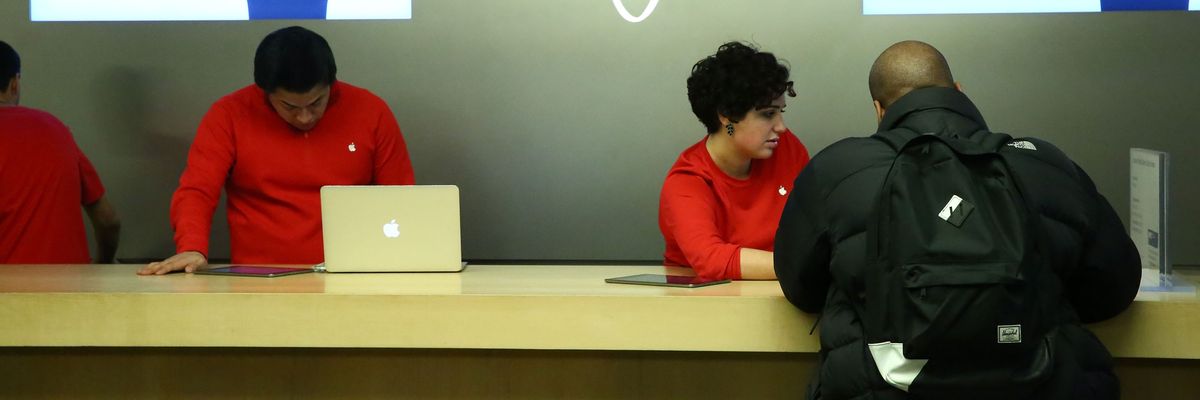In a move that advocates said will save Oregon residents money while supporting small businesses and reducing waste of electronic devices, Democratic Gov. Tina Kotek on Wednesday signed the Right to Repair Act, a law that passed earlier this month despite Apple's lobbying efforts.
The Public Interest Research Group (PIRG), applauded the signing of the bill, which requires manufacturers to provide Oregonians and small repair businesses with access to the parts, tools, and information needed to fix personal electronics and household appliances.
Manufacturers like Apple frequently require consumers to go to their stores or authorized service providers for repairs, making them expensive for customers and difficult to access for people who live far from the providers.
Charlie Fisher, state director of Oregon PIRG, said the law means Oregon is "moving forward on an innovation even more critical than a new gadget: the right to fix our electronic devices."
"By eliminating manufacturer restrictions, the right to repair will make it easier for Oregonians to keep their personal electronics running," said Fisher. "That will conserve precious natural resources and prevent waste. It's a refreshing alternative to a 'throwaway' system that treats everything as disposable."
The Right to Repair Act, which will go into effect on January 1, 2025, was supported by roughly 100 small businesses that provide repairs across the state, as well as recycling nonprofit organizations.
Apple testified against the bill, saying it opposed a provision against "parts pairing." The practice requires consumers or independent repair businesses to purchase parts from Apple and have them validated by the company.
John Perry, a senior security manager at Apple, told state senators that the provision would "undermine the security, safety, and privacy of Oregonians by forcing device manufacturers to allow the use of parts of unknown origin and consumer devices."
State Rep. Courtney Neron (D-26) cited a letter from the Federal Trade Commission when she told her colleagues that Apple's parts paring requirements "drive up the price that consumers must pay to fix a device and cause consumers to purchase a new device before the end of its useful life."
"Manufacturer repair restrictions also make it more challenging for small repair businesses to compete and contribute to unnecessary e-waste," she said.
Pro-labor media organization More Perfect Union called Kotek's signing of the bill "a major loss for Apple."
"Oregon has a proud history of passing forward thinking policies that help Oregonians steward and respect the resources that go into making the products we use everyday," said Celeste Meiffren-Swango, state director of Environment Oregon, "and we are building on that legacy with the Right to Repair Act."

